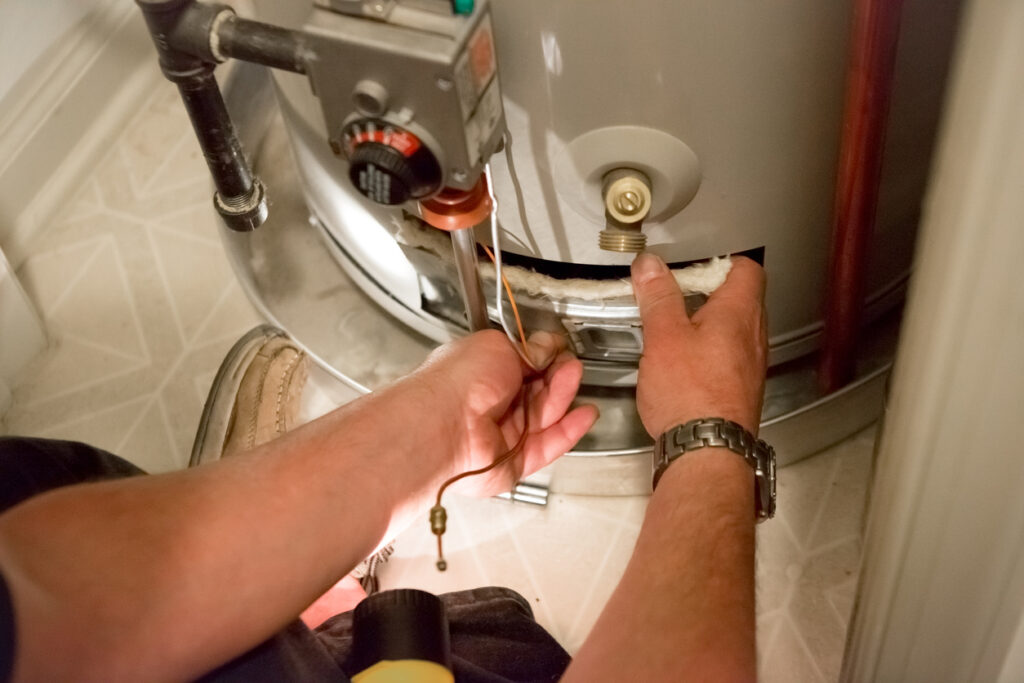
As a homeowner, you’ve likely heard about the importance of carbon monoxide detectors for your health and safety. But did you know this is largely due to having fossil fuel-burning appliances, such as gas, propane, or oil-burning water heaters? The ventilation requirements between gas and electric water heaters can vary significantly.
Below, Avid Plumbing explains the different ventilation requirements for electric and gas water heaters.
What Is Venting & Why Is It Important?
Ventilation is crucial for gas, oil, or propane-powered water heaters because they rely on the combustion of fossil fuels to heat the water. This combustion process produces exhaust gases, including carbon monoxide, an odorless gas that can be deadly.
Proper venting ensures these harmful gases are expelled, preventing the buildup of dangerous fumes that could pose a serious health risk to you and your loved ones.
Ventilation Requirements for Electric Water Heaters
Unlike their gas-powered counterparts, electric water heaters don’t require venting. There’s no combustion process involved, and therefore, no need to vent any exhaust gases. Electric water heaters are self-contained units that need to be connected to a power source, making the installation process more straightforward and eliminating the need for complex venting systems.
Electric vs. Gas Water Heaters
The main difference between electric and gas water heaters’ ventilation requirements is their heating mechanisms. Gas water heaters must be properly vented to the home’s exterior to remove the byproducts of combustion safely. In contrast, electric water heaters don’t have this concern, as they don’t produce any harmful gases during the heating process.
How Do Electric Water Heaters Work?
Electric water heaters are popular due to their simplicity, energy efficiency, and lack of ventilation requirements. Unlike gas-powered water heaters that rely on fuel combustion, electric water heaters use electricity to heat the water.
Electricity warms up heating elements that are submerged inside of the water in your water heater tank, and through direct contact, the heat is transferred to the water.
The thermostat inside the lining of your water heater controls the temperature of the heating elements. When the water reaches the desired temperature, the heating elements are turned off.
The thermostat monitors the water temperature and automatically turns the heating element on and off to maintain the preset temperature, typically between 120°F and 140°F. This helps ensure a consistent hot water supply while preventing the water from getting too hot.
Schedule Electric Water Heater Services
If you’re in the market for a new water heater or need to replace your unit, consider the benefits of an electric water heater. At Avid Plumbing, our experienced professionals can guide you through the selection process and ensure a smooth installation without the added complexity of venting requirements.
Our plumbers are licensed, insured, and committed to delivering reliable, honest, and efficient work. We stand behind our services with a 100% satisfaction guarantee, giving you peace of mind that your water heater will be installed correctly and to your satisfaction.
Call Avid Plumbing to schedule an electric water heater installation or repair in Madison, WI.
